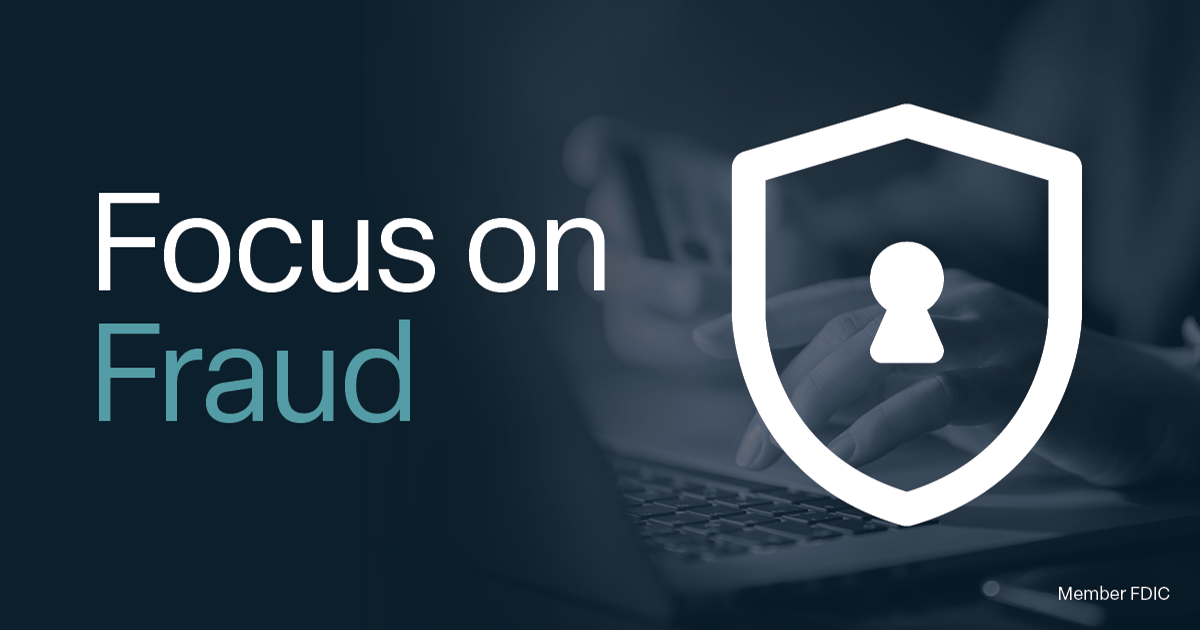Safeguard your data from these 3 common cybercrimes

The tactics criminals use to steal your information and money continue to evolve with advances in technology. It’s critical to be aware of common schemes and to take steps to protect yourself.
Some of the latest cybercrime tactics include:
1. Synthetic identity fraud
Synthetic identity fraud occurs when criminals combine real and fake information to create a new identity, leveraging stolen data and personal information purchased on the dark web. Sometimes referred to as “Frankenstein” identities, criminals use these to build a credit score and borrow money that will never be paid back.
This type of fraud is particularly dangerous because it can outsmart retail and bank fraud control systems and go undetected. Over time, access to credit by real consumers can become more difficult and more expensive.
To protect yourself:
- Regularly monitor your credit reports for any unfamiliar accounts or activities.
- Use strong, complex passwords and change them regularly.
- Set up Multi-Factor Authentication to further protect your accounts, even if your password is compromised.
- Set up alerts for any suspicious activities on your accounts.
2. Identity theft fraud
Identity theft is when someone steals personal information to commit fraud. They may use your Social Security number, bank account number or other means of identification to open new accounts or initiate purchases. Thieves can acquire this information by stealing your wallet, going through the garbage or intercepting mail, but they can also get it online.
Phishing, where fraudsters send emails or messages pretending to be from legitimate companies or even someone from your bank, is a common means to try to steal your information. They may also get this information through the use of skimming devices on ATMs or card readers. They may also hack a company with large amounts of consumer data and sell it on the dark web.
To protect yourself:
- Learn to recognize signs of identity theft, including unfamiliar charges on your bank or credit card statements, missing bills, sudden changes in your credit score or new accounts you didn’t open.
- Secure your devices with antivirus software and keep them updated.
- Be cautious online and avoid sharing personal information on unsecured websites.
- Shred sensitive documents before disposing of them.
3. Social media shopping fraud
Social media shopping is on the rise, with more than half of users reporting that they have purchased a product after seeing it on social media.* Unfortunately, scammers take advantage of these numbers and use various tactics to deceive consumers.
Common tactics include fake online stores, phishing scams with links to fake websites, counterfeit goods and undelivered goods where the consumer pays for items that never arrive.
To protect yourself:
- Be cautious and verify sellers by checking reviews and ratings before making a purchase.
- Use secure payment methods like credit cards or secure payment platforms and be skeptical of deals that seem too good to be true.
- Recognize red flags. These may include poor website design and unusual payment requests like gift cards, cryptocurrency or wire transfer.
- Report suspicious sellers to the social media platform.
Fraud can happen to anyone. If you think you’ve been a victim, call Umpqua Bank immediately at 866-486-7782.
Be sure to check out our other Focus on Fraud topics, including:
- How AI is changing the look of financial fraud
- Protect yourself from external transfer scams
- Protecting older loved ones from financial fraud
* A Look Back: 2023 Biggest Fraud Trends, Experian Insights, December 19, 2023






